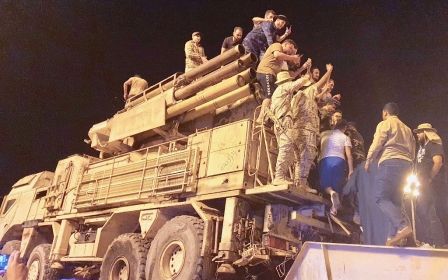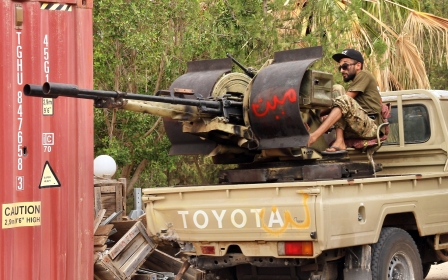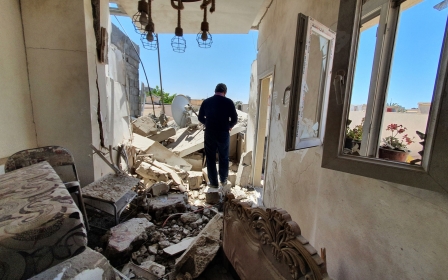Libya's GNA regains last remaining Haftar stronghold near capital
Libya’s UN-recognised government captured the last remaining stronghold of eastern-based commander Khalifa Haftar near Tripoli on Friday, all but bringing to an end his 14-month offensive on the capital.
The recapture of Tarhuna, which had served as a launchpad of Haftar’s devastating offensive to seize the capital, came in the same week that the Government of National Accord (GNA) reasserted control over the whole of Greater Tripoli, and days after the warring parties agreed to resume ceasefire talks.
"Our heroic forces have extended their control over the whole of Tarhuna," said GNA spokesman Mohamed Gnounou.
GNA head Fayez al-Sarraj vowed that his government would impose its control over all of Libya.
"Our fight continues and we are determined to defeat the enemy, impose state control on the whole of the homeland and destroy all those who jeopardise the construction of a civil, democratic and modern state," Sarraj said after talks with the GNA's main military backer Turkey.
New MEE newsletter: Jerusalem Dispatch
Sign up to get the latest insights and analysis on Israel-Palestine, alongside Turkey Unpacked and other MEE newsletters
Turkey began providing military support to the GNA in November after signing a military cooperation pact alongside a maritime demarcation deal, which gives Ankara exploration rights in the Mediterranean. The deal was rejected by Greece and other countries.
In recent months, Turkish support in the conflict, including the use of drones, has pushed back Haftar's Libyan National Army (LNA), which is backed by the United Arab Emirates, Russia and Egypt and had been attacking the GNA in Tripoli since April 2019.
The swift fall of Tarhuna, located in the hills southeast of Tripoli, suggests that Haftar's foreign supporters were less willing to sustain his bid to take over the entire country once Turkey intervened decisively to stop him.
On Thursday, Haftar spokesman Ahmed al-Mesmari confirmed his forces' “redeployment” away from the capital as part of a "humanitarian gesture intended to spare the Libyan people further bloodshed" and to assist a UN-backed military commission tasked with shoring up a countrywide ceasefire.
"We announce that we are redeploying our forces outside Tripoli on condition that the other side respect the ceasefire," he said in a statement released late Thursday.
"If they do not respect it, we will resume military operations and suspend our participation in the negotiations of the military committee."
The United Nations on Monday said both sides had agreed to resume ceasefire talks, warning that weapon and fighters flying into Libya in defiance of an arms embargo threatened a major new escalation.
A military commission made up of five delegates each from the GNA and LNA held talks in February, but the dialogue was suspended.
And a truce brokered in Berlin in January by Turkey and Haftar's ally Russia has been repeatedly violated.
However, recent GNA gains could entrench the de facto partition of Libya into zones controlled by rival eastern and western governments whose foreign backers compete for regional sway.
Hundreds have been killed and 200,000 more driven from their homes since Haftar launched his assault last year.
Libya has endured years of violence since the 2011 uprising that toppled and killed dictator Muammar Gaddafi, with rival administrations and militia competing for power.
Middle East Eye delivers independent and unrivalled coverage and analysis of the Middle East, North Africa and beyond. To learn more about republishing this content and the associated fees, please fill out this form. More about MEE can be found here.




